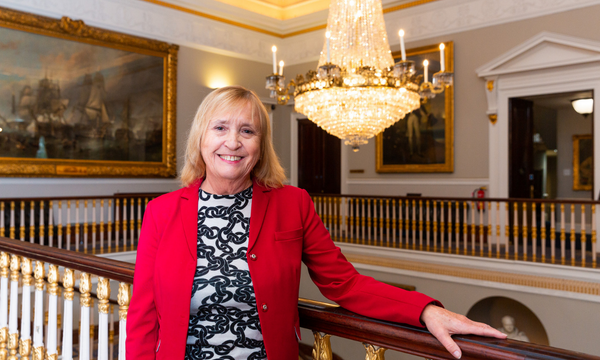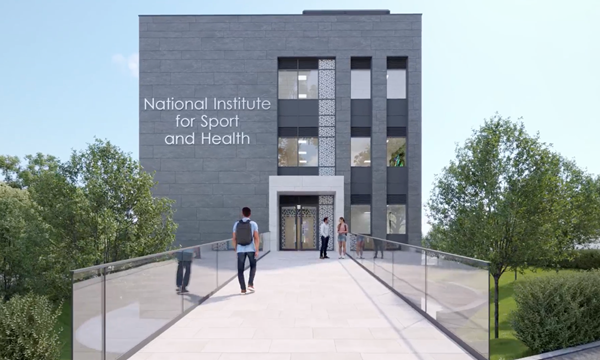 Written by:
Written by:
John Jackson
Industry Editor
My first experience of modular construction was at school where many classes took place in a series of prefabs dotted around the school grounds.
Just like the post-war prefabricated homes these really weren’t the best advert for offsite construction. However they were of their time, and the modular homes being manufactured today are a very different proposition which has the very real potential to play a key role in solving the housing crisis.
Modular buildings are one aspect of a range of methods of construction that are collectively referred to as Modern Methods of Construction (MMC). These methods include:
- Factory made panels that are assembled on-site.
- Modular / Volumetric units manufactured in a factory and then taken to site.
- Methods that use a combination of both panel and volumetric.
- A range of elements that pre-assembled off-site.
As modular homes can be manufactured to exacting standards in a controlled factory environment they overcome the challenge of trying to build in all weathers and open up the possibility to embrace technology to introduce further efficiencies to the production process. Taking into consideration the extent of the housing shortage in the UK modular homes represent a significant opportunity to increase the supply of homes at pace. This is something the Welsh Government, as part of their Modern Methods of Construction strategy, is actively supporting with a £45 million investment in the modular housing industry in Wales. This strategy will help to ensure more energy efficient homes are delivered in the Social Housing Sector, whilst at the same time supporting the Welsh economy and helping to create new employment opportunities.
Modern Methods of Construction are more commonplace in Europe, whereas here in the UK mainstream house builders continue to rely on traditional bricks and mortar construction. One view is that this is what consumers want and expect from a house, although it's fair to say that for homebuyers choice in the housing market is limited, particularly in the mass market.
Meanwhile, in recent years we’ve seen many aspects of our lives transformed by “disruptors” including Uber, Airbnb, Netflix and not forgetting Amazon that seems to be delivering everything to everyone. Now I’ll let you decide if these have all been genuinely beneficial to our built environment, but it does make me wonder if house building itself is now ready for this type of game changing disruption. Widespread adoption of modular housing has the potential to be just that disruptor for housing of all tenures, and could be the solution to concerns surrounding:
- The lack of supply of new homes
- The increasing unaffordability of houses
- The small size of new homes, particularly when compared with Europe
- The need to build zero carbon homes to combat climate change
- New developments that don’t create a sense of community or allow people to connect with their natural surroundings
- The need to design houses to support the increasing number of activities undertaken in the home.
Encouragingly, an increasing number of modular homes are being built and delivered to sites across Wales, and for the wider business community this has the potential to create significant demand for Welsh timber and steel, whilst also creating new skilled jobs to manufacture the homes.
In the same way that not all traditionally built homes are the same, with a modular home a lot depends on who the developer is and what they are looking to achieve for their buyers and residents. One inspirational creator of modular homes is House by Urban Splash, whose ethos is “Live Well by Design” and this translates to offering buyers configuration options to make their new home support the way they live. Multiple award winning, House by Urban Splash was established by Urban Splash, which itself has an illustrious track record in urban regeneration and placemaking. With this in mind, I asked Urban Splash Founder and Chair, Tom Bloxham MBE to explain the motivation behind establishing House by Urban Splash, and for his thoughts on the future of modular housing.
“We are accustomed to buying products that are made in factories, and this makes sense for both the customer and the manufacturer. Take buying a new car, we don’t expect the components to be delivered to our homes and then a team of people arrive to build the car outside in all weathers. The end result wouldn’t offer the quality consumers should expect, and yet for many years we’ve been perfectly happy to accept houses being built this way. In contrast modular homes are built in a controlled factory environment that works year round to produce homes quickly and to exacting quality standards before being transported to site. For me modular manufacturing also opened up the possibility to work with the team to develop homes that reflect and support the way people want to live their lives. This has resulted in us being able to offer people choices to configure their new home in a way that works best for them”.
“As for the future of modular housing, I know demand for our homes is high and that’s not just because of the home itself. Instead we apply our “Live Well by Design” mindset to the entire development, and this means our homes have private courtyard gardens for personal space, along with secure communal space for residents to enjoy, and open parkland. This helps to create locations that people can enjoy living in. As for House by Urban Splash, we are keen to identify suitable sites in Wales, and this itself will be an exciting new chapter for our future”.
Offsite modular construction presents an opportunity to manufacture new, energy efficient homes at scale, pace and to exacting standards. They also, as House by Urban Splash illustrate, allow us to revisit how a home should be designed to best support the lives of the people who live in them. Without question we will see a significant increase in the number of modular homes being built, and in time it wouldn’t surprise me if modular overtakes traditional house building to become the mainstream way to deliver new homes.











